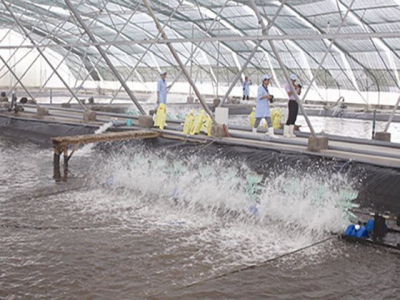Foreign media campaigns influence barriers to Vietnam seafood exports

The shortcomings in the Vietnam seafood industry have been exaggerated by foreign media, placing obstacles on domestic seafood exports.
Vietnam has made a big progress in recent years in controlling antibiotics
Dang Quoc Tuan, deputy chair of Vietnam-Australia Seafood, said the Vietnam seafood industry has been facing many risks over the last 20 years, including media risk.
Once FTAs are signed, or tariff barriers are removed, technical barriers will be used under different modes to restrict imports.
The organizations and associations in western countries strive to protect local producers against imports. Some of them have such power that they may have a negative impact on the industries of other countries.
Tuan, citing the “slander campaigns” raised by some European countries recently, said the impact of the campaigns on Vietnam’s exports are not significant because Vietnam products observe laws and meet standards.
For example, in terms of using antibiotics in farming, it has to observe the World Veterinary Association of which Vietnam and the EU are members.
“Vietnam exported $3.85 billion worth of shrimp products in 2017 and its products can enter choosy markets such as the EU. This means that Vietnam’s products are safe,” he commented.
Vietnam exported $3.85 billion worth of shrimp products in 2017 and its products can enter choosy markets such as the EU. This means that Vietnam’s products are safe.
However, the media campaigns will, to some extent, affect consumers’ decisions and this, in the long term, will cause serious consequences to Vietnam’s seafood.
Danish media recently denounced Vietnam’s shrimp industry for forcing laborers to work overtime and reported that Vietnamese workers get sick inhaling toxic gas for many hours at processing workshops, and that shrimp products have antibiotic residue.
Tran Van Pham, general director of Soc Trang Seafood Company (Stapimex), said the company’s seafood samples were taken two or three times for testing, but no antibiotics were found.
However, Pham said antibiotic residue in seafood products remains a problem at some places. In Vietnam conditions, shrimp farming is carried out in small scale and it is difficult to control antibiotic use in farming areas.
Truong Dinh Hoe, secretary general of VASEP (Vietnam Association of Seafood Exporters and Producers), affirmed that Vietnam has made a big progress in recent years in controlling antibiotics.
“This was a serious problem two years ago, but it has been settled,” Hoe said.
Regarding the criticism about the bad working environment, Pham says this doesn’t exist in Vietnam.
“In Vietnam, the working conditions at seafood processing companies are equal or better than other countries,” he said.
At Stapimex, for example, environmental quality, facilities and working conditions are examined periodically every year.
Pham said seafood processing companies now have to compete fiercely to recruit workers. If workers don’t feel satisfied about conditions and pay, they will leave for other companies immediately.
Related news
 Pangasius farmers get some profit to work with enterprises
Pangasius farmers get some profit to work with enterprises Pangasius farmers do not get quite large profit as working with enterprises, but more importantly they live with it and avoid market risks.
 How we can help children reach for seafood
How we can help children reach for seafood When we talk about seafood and how to increase seafood consumption to maintain and improve our health, we often neglect children
 Demand for VN seafood on the rise
Demand for VN seafood on the rise The domestic fishing industry should promote production of tra fish and shrimp by the end of this year to take advantage of the export potential of both